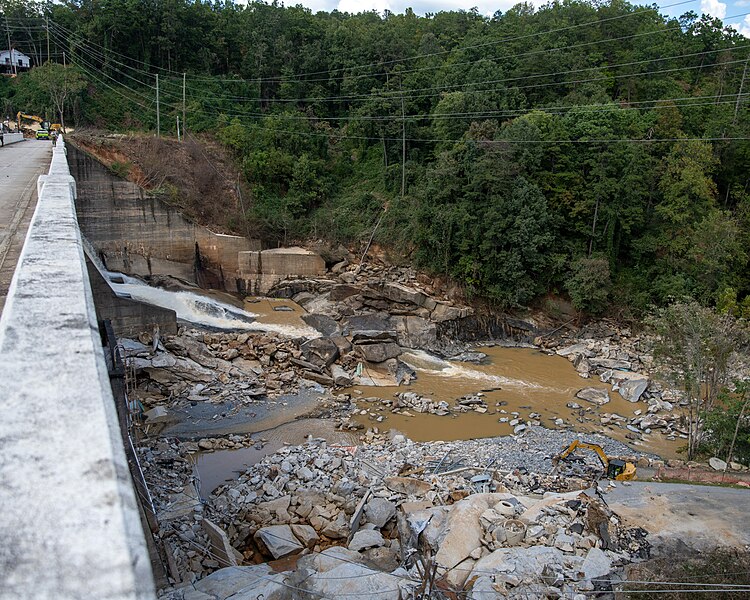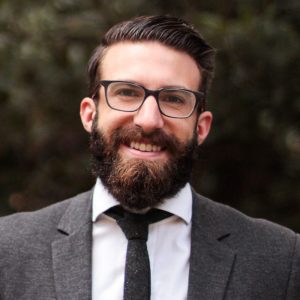“If the word community is to mean or amount to anything, it must refer to a place (in its natural integrity) and its people. It must refer to a placed people. Since there obviously can be no cultural relationship that is uniform between nation and continent, ‘community’ must mean a people locally placed and a people, moreover, not too numerous to have a common knowledge of themselves and of their place.” -Wendell Berry, “Sex, Economy, Freedom, and Community"
On September 27, it stopped raining. After three days of heavy downpour, my place was different. My people were changed.
After being confined like sheltered prisoners for a few days, my young family—three kids in tow—chose to go on a walk in our neighborhood. We didn’t have power or internet service or water, so there wasn’t much else to do. On our twenty-minute walk around our urban neighborhood, there were 13 downed trees. Many of these trees had taken powerlines down with them, but few did any damage to houses or cars. “Man,” I thought. “This is wild.”
After some good Samaritans cut up some of those trees the following day, we could finally drive out of our neighborhood and look around. Since we’d been off the grid, we had no idea what would meet us.
Imagine the worst natural disaster that could happen in your area. Really let your mind wander. What would it look like in your neighborhood if some natural devastation occurred? When I look at the ocean, I can imagine the waves rising 5 or 10 feet and thinking, “That would be bad.” I could imagine the river rising 5 or 10 feet and thinking about breached banks and waterlogged homes. It’s still hard for me to picture a river rising 25 feet—and I saw it. It’s still difficult to comprehend. Driving around town was worse than I could have ever imagined. That’s about the only way I know how to describe the situation to those outside of the region: worse than your wildest imagination. “Man,” I began to think. “This is devastating.”
I’ve heard it said that grief hits hardest about two months after a tragedy. After the people who’ve come to help leave, after the meal trains stop, after resources dry out, the loneliness sets in. It’s when you feel forgotten.
It’s been about two months since Hurricane Helene hit the Appalachian mountains and coves, and the subsequent floods tore through my community in Western North Carolina. I know the stages of grief aren’t necessarily accurate, but it seems like I’ve gone through them. Denial. It’s not that bad. We’ll have water soon. (After 53 days, we received clean water last week). Panic. Do we have enough gas to make it out? What will we eat once the food in the fridge is rotten? Anger. Why isn’t this a bigger deal in the national media? Why are friends calling me a week later, not even knowing to check in, because they didn’t know how bad it was? Where’s the assistance? Sadness. The complete loss that some people have faced is astonishing. The lingering effects of regional economic loss may be more devastating in the months and years ahead. Should we have left? I don’t know if I’ve arrived at the acceptance phase, but there is a new normal setting in. It makes you see the old differently. A quick shower now takes driving to a resource center. Laundry requires hours of sitting and waiting. Washing dishes is an extended chore. I have to leave my house to get drinking water.
Asheville is a tourist economy. It’s joked that it’s a BYOJ community: bring your own job, or else you work in the service industry. However, few of these tourist industries are making much money. Few people can serve food (for profit) with no clean water. No one is interested in breweries at the moment. No waiters, no brewers, no sales. Often, these communities depend on “leaf season”—where people flock to the area in October and November to see the beauty of mountains changing colors in the fall. However, there is little beauty at this moment. Whole mountainsides are torn down with mudslides. Trees look as if they’ve been shredded in a grinder. Sure, some leaves are changing shades of yellow, orange, and red. But there are limited hosts here. The hospitality industry has little hospitality.
It’s not merely a matter of cleanup—which I can’t imagine will be over sooner than months. I mean, how do you empty a lake of debris, or move a semi-truck and train from the middle of a road—much less the silt that has collected in many buildings. And it’s not a matter of rebuilding—which will take years, especially in areas hit hardest. It’s that the economy is dependent on people visiting, going out, spending money. And at least for a few months, no one is doing that, and therefore, no one is making money—from business owners to dishwashers. When the cleanup is over, what will be left? When the slow season hits after the “busy season” that didn’t deliver, who will be here in our local community that makes a place?
As my community moves from destruction to recovery and on to repair, this new normal makes me see my consumer choices differently. I often remind myself that every consumer decision is a moral choice. A t-shirt with a Christian slogan that was stitched by child labor is a moral choice. The ease of shopping at Amazon is a moral choice. The cheap, steroid-injected rotisserie chicken is a moral choice.
I’ve tended to shop locally on principle. I’ve read enough Wendell Berry to appreciate the ties of community and the value of local places over big box stores (that tend to erode local community life). Turns out, corporate companies don’t do much for local communities in tragedy, either. Many of these chains still haven’t opened here. They don’t need the income; they have other streams through the franchise. Why sacrifice for some podunk town? Meanwhile, local businesses, those who don’t have coffers of excess, gave sacrificially to feed us in the wake of devastation, often at a personal loss.
I’ve begun to see my moral consumer choices as mandates over preference. Do I want to see Amie and Lyndon at Botanist and Barrel in the spring? Then I need to visit their wine shop, and maybe bring a few extra bottles to Thanksgiving. Do I want a warm cup of coffee in the cold winter months? Then a drive through Starbucks is convenient, but maybe I get out of my car and go to Cooperative Coffee this winter. If I want my neighbor, Luis, to stay my neighbor, then I need to visit his Taqueria Rosita. (An added bonus for me is that the tacos are delicious). Do I care about the plethora of craft breweries in the area? Then I need to spend more money to support this local economy. And on and on. In the midst of our storm, these have become moral imperatives over expedient preferences. How could I not sacrifice for these local people who supported me in my need? Placed people will not survive without mutual affection and support.
Tourism won’t save our economy. (Though it will help! Come! Spend!) A local economy of care will preserve any community. If I want to see my neighbors in the food and beverage industry next year, then my consumer choices mandate sacrifice today. I know my few dollars won’t save any company, but I’ve come to see the weight of where my money goes. I want to see my money supporting these owners and employees who have become friends.
I call Southern Appalachia home. I’m not from this area. I have little local knowledge or history. I’m from another nowhere place in the rustbelt of the Midwest. I know what it means to be looked down upon, to be from an undesirable place, and to love that place for its undesirability. No one wants to be from Ohio any more than someone wants to be a hillbilly.
Though Appalachia has undergone a recent renaissance of culture—from culinary tradition to craft brewing—the mountains of North Carolina have typically been viewed as an inferior place (which brings the stigma of inferior people). Pioneers were seen as rugged individualists, surviving in more extreme conditions. But as the global economy shifted from an exchange economy to a market economy, Appalachia was getting “left behind.” Modern America was becoming industrial, and Appalachia stayed agrarian.
There’s been a mountain spirit that doesn’t “aspire” to be anything but what we are and where we are. In her affectionate Appalachia cookbook, Ronni Lundi picks up this aspirational theme as she talks to her friend Walter Harrill of Little Pisgah Mountain. Walter raises an eyebrow and responds, “See, I think assuming ‘aspirational’ for a motivation assumes those of us living here, in the mountains, are desiring to be a part of the world ‘out’ there.’ But the truth of it is, we look ‘out there,’ at the rest of the world, and then we kind of shake our heads and say, ‘Well, I just hate it for them.’” That’s the Appalachian spirit I’ve come to love. It’s the Appalachian spirit that gives me hope even in the devastation around me. It’s a fighting spirit and a content spirit. It’s a spirit capable of nurturing a local community.
I mourn the storm. It’s far from over. But I also do not mourn without hope. We don’t want to be a people “out there.” We’re okay with being right here in our place with our community.
Image via Wikimedia Commons





1 comment
Brian Miller
Alex,
I am glad to hear you and your family are ok. It really is hard to fathom how that storm has impacted the region, how hard and long will be the recovery, even in Asheville. I bet your Thanksgiving will be one of the most meaningful.
Brian
Comments are closed.